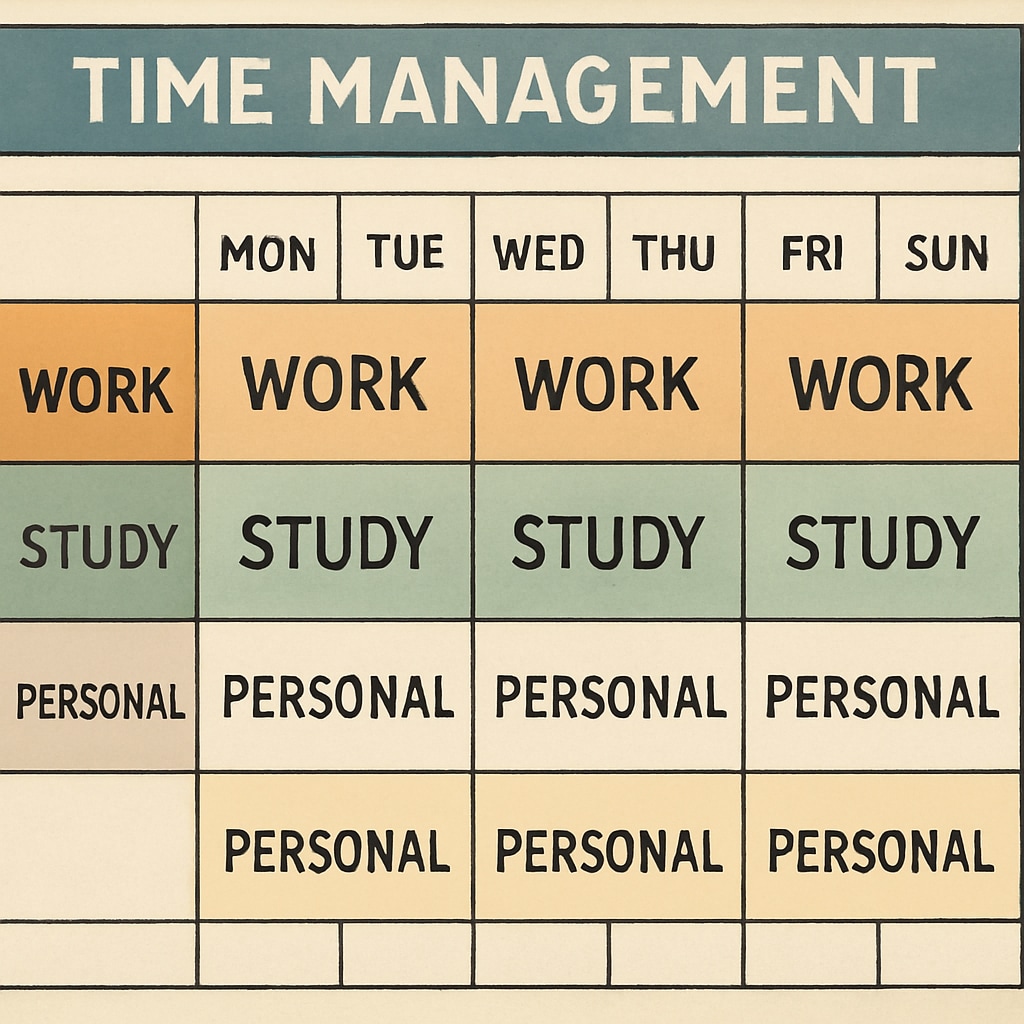For many working professionals, pursuing a master’s degree often feels like a daunting challenge, especially when trying to balance career growth and time management. While the promise of advanced education can boost career prospects, the reality of juggling work responsibilities, personal commitments, and academic goals can be overwhelming. This article explores the challenges adults face when seeking higher education and provides actionable strategies for navigating this journey successfully.
Why Professionals Pursue a Master’s Degree
The decision to pursue a master’s degree typically stems from the desire for career advancement, skill enhancement, or personal fulfillment. As industries become more competitive, having a higher-level qualification can set candidates apart from their peers. According to Britannica’s overview of higher education, advanced degrees often lead to better job prospects and higher salaries.
In addition to career benefits, pursuing a master’s degree can also provide intellectual stimulation and open doors to networking opportunities with like-minded individuals. However, achieving these benefits requires careful planning and commitment.

The Challenges of Balancing Work and Academic Goals
Time management is one of the biggest obstacles professionals face when pursuing advanced education. Unlike traditional students, adult learners often have full-time jobs, family responsibilities, and social commitments. The combination of these factors can lead to stress, burnout, or even giving up on academic goals.
Common challenges include:
- Lack of time: Balancing work, study, and personal life often results in limited hours for coursework.
- Financial strain: Funding a master’s degree while managing daily expenses can be challenging.
- Energy levels: After a long day at work, finding the motivation to study can be difficult.
Despite these hurdles, many professionals find ways to successfully manage their time and resources to achieve their goals.

Practical Strategies for Balancing Work and Studies
To pursue a master’s degree while maintaining career momentum, professionals should adopt effective time management tactics and prioritize their responsibilities. Below are some actionable strategies:
- Create a realistic schedule: Allocate specific time slots for work, study, and relaxation to avoid overloading yourself.
- Leverage online learning: Many universities offer flexible online programs that allow students to study at their own pace.
- Communicate with employers: Discuss your academic goals with your employer to explore potential support, such as adjusted work hours or tuition reimbursement.
- Break tasks into smaller steps: Dividing coursework into manageable chunks can make studying less intimidating.
- Use productivity tools: Apps like Trello or Google Calendar can help organize tasks and track deadlines efficiently.
By implementing these strategies, professionals can reduce stress and stay on track with both their career and academic ambitions.
Real-World Benefits of a Master’s Degree
Completing a master’s degree offers tangible rewards that extend beyond personal satisfaction. For example, advanced education can lead to higher earning potential, better job security, and opportunities for leadership roles. According to Wikipedia’s insights on postgraduate education, many industries actively seek candidates with specialized knowledge that only a master’s program can provide.
Moreover, the skills developed during graduate studies—such as critical thinking, research proficiency, and project management—can directly translate into workplace success. Professionals who earn advanced degrees often find themselves more confident and capable of tackling complex challenges in their careers.
However, it’s important to weigh the costs and benefits carefully, ensuring the program aligns with long-term career goals.
Conclusion: Achieving the Balance
Pursuing a master’s degree while managing a stable career is undoubtedly challenging, but with proper planning and determination, it is achievable. By understanding the true value of advanced education and employing effective time management techniques, professionals can unlock new opportunities without compromising their current success.
Whether through online programs, employer support, or careful scheduling, adult learners can transform the pursuit of a master’s degree into a rewarding and manageable experience. After all, lifelong learning not only enriches the individual but also strengthens their contributions to the workplace and society.
Readability guidance: Use clear examples and concise steps to guide readers. Ensure transitions between paragraphs, avoid jargon, and maintain professional tone.


